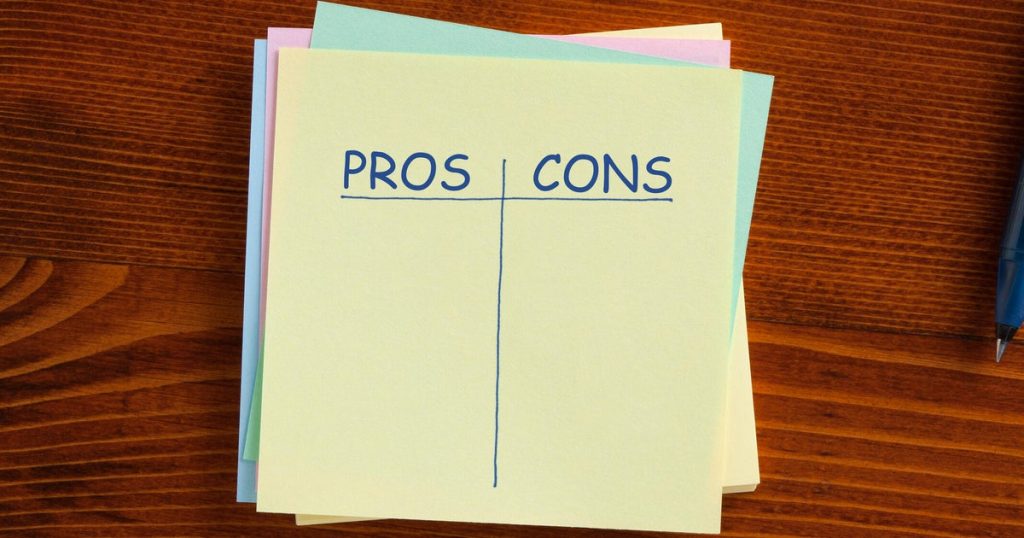As the economy experiences shifts in interest rates, individuals are faced with important decisions regarding their savings. Traditional savings accounts are currently offering minimal returns, making high-yield savings accounts more attractive. However, savers should weigh the pros and cons of these accounts, particularly in light of potential interest rate cuts later this year. This article delves into the key advantages and disadvantages of high-yield savings accounts as of July, helping consumers make informed financial choices.
| Article Subheadings |
|---|
| 1) Pro: Interest rates are still high |
| 2) Con: Interest rates may fall sooner than expected |
| 3) Pro: You’ll maintain the flexibility you need right now |
| 4) Con: You may need to use an online bank instead of your current one |
| 5) The bottom line |
Pro: Interest rates are still high
One of the most compelling reasons to consider a high-yield savings account right now is the competitive interest rates being offered. Presently, many financial institutions have high-yield accounts featuring interest rates as high as 4.30%. This means that account holders can earn over $4 for every $100 deposited simply by choosing the right account and consistently maintaining their funds. This is particularly relevant as traditional savings accounts are yielding an average of only 0.38%, as reported by the Federal Deposit Insurance Corporation (FDIC). By taking advantage of high-yield savings, consumers can make their money work harder for them, which becomes crucial in the current climate of rising inflation.
Con: Interest rates may fall sooner than expected
While banks are currently offering attractive rates on high-yield savings accounts, there’s considerable speculation regarding upcoming interest rate cuts by the Federal Reserve. The consensus among market analysts suggests that a rate cut could take place in September, though the conditions surrounding that flap might change. It’s important to understand that high-yield savings account rates are not directly tied to the Fed’s adjustments; instead, banks can proactively reduce rates in anticipation of changing economic conditions. This means that individuals might find their high-yield accounts losing their attractiveness sooner than they wished. As a result, consumers must keep a close eye on the economic climate and how it could affect their savings options.
Pro: You’ll maintain the flexibility you need right now
One of the key advantages of high-yield savings accounts is their flexibility compared to other savings vehicles like certificates of deposit (CDs). With CDs, account holders often face penalties if they withdraw funds before the end of the term. Conversely, high-yield savings accounts allow for easier access to funds. This flexibility is increasingly valuable in times of economic uncertainty, when liquidity may be essential. Given the ongoing fluctuations in inflation and the Federal Reserve’s possible rate cut, consumers may not want to lock away their cash for extended periods. High-yield saving accounts offer the perfect balance, giving savers both access and decent returns.
Con: You may need to use an online bank instead of your current one
For those accustomed to the convenience of traditional banking, switching to an online bank can present challenges. Most of the higher interest rates available on high-yield savings accounts come from online banking institutions, which typically have lower overhead costs than brick-and-mortar banks. They can pass those savings along to customers in the form of higher rates. However, this may require customers to be comfortable with online banking processes, which can involve different methods for deposits and withdrawals compared to their local banks. Savers must weigh the benefits of potentially higher returns against the learning curve and adjustment that accompanied moving to a digital banking model.
The bottom line
The current landscape surrounding high-yield savings accounts presents both opportunities and challenges. Despite a gradual decline in prominent interest rates, they still offer a viable option for savers looking to grow their funds. However, it’s crucial for consumers to carefully consider the aforementioned pros and cons before committing to an account. Evaluating personal financial needs and preferences can help inform whether high-yield savings accounts are the right choice or if other savings options, like CDs and money market accounts, may serve them better. While keeping funds in traditional savings accounts tends to be less favorable, understanding these dynamics can lead to a more informed financial decision.
| No. | Key Points |
|---|---|
| 1 | Average rates in traditional savings accounts are currently low at 0.38%. |
| 2 | High-yield savings accounts offer competitive rates around 4.30%. |
| 3 | Potential interest rate cuts from the Federal Reserve could affect savings rates. |
| 4 | High-yield savings accounts provide flexibility not found in CDs. |
| 5 | Switching to online banks may be necessary to benefit from higher rates. |
Summary
In conclusion, high-yield savings accounts remain an appealing choice for individuals seeking better returns on their savings amid a changing economic landscape. However, savers should remain cognizant of the potential pitfalls, including the risk of falling interest rates and the need to adapt to online banking. By understanding both the benefits and limitations, individuals can make informed decisions that align with their financial goals. In a time where smart financial strategies are more crucial than ever, evaluating these factors will ultimately lead to better financial outcomes.
Frequently Asked Questions
Question: What is a high-yield savings account?
A high-yield savings account is a type of savings account offered by banks that provides a higher interest rate than traditional savings accounts, allowing customers to earn more on their deposits.
Question: Can I withdraw money anytime from a high-yield savings account?
Yes, high-yield savings accounts typically allow for easy access to funds and do not impose penalties for early withdrawal, unlike certificates of deposit.
Question: Are online banks safe for my savings?
Yes, online banks are generally safe as they are regulated and insured by the FDIC, similar to traditional banks, ensuring that your deposits are protected up to $250,000.


